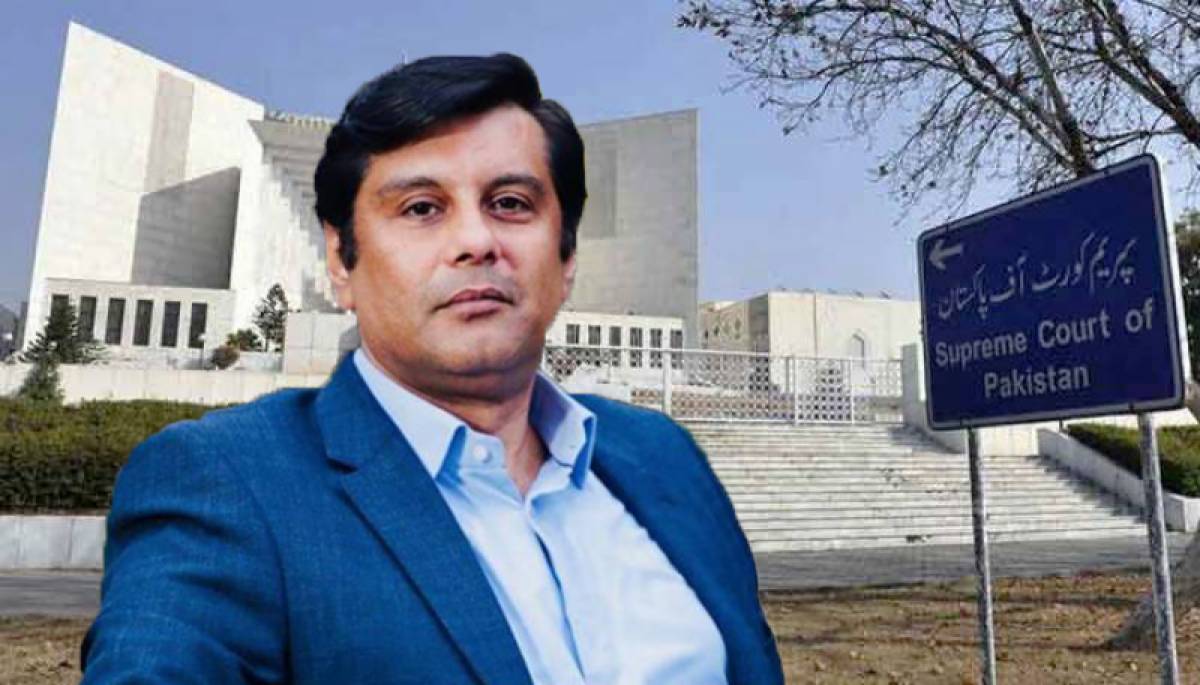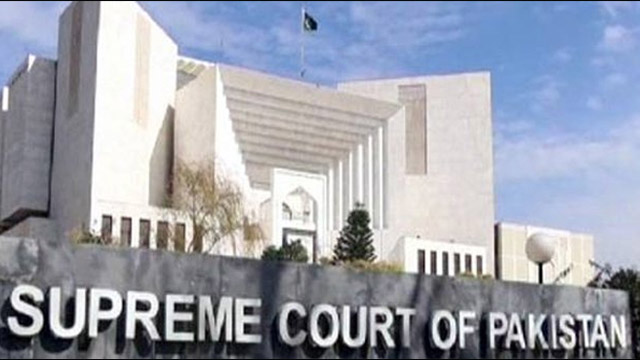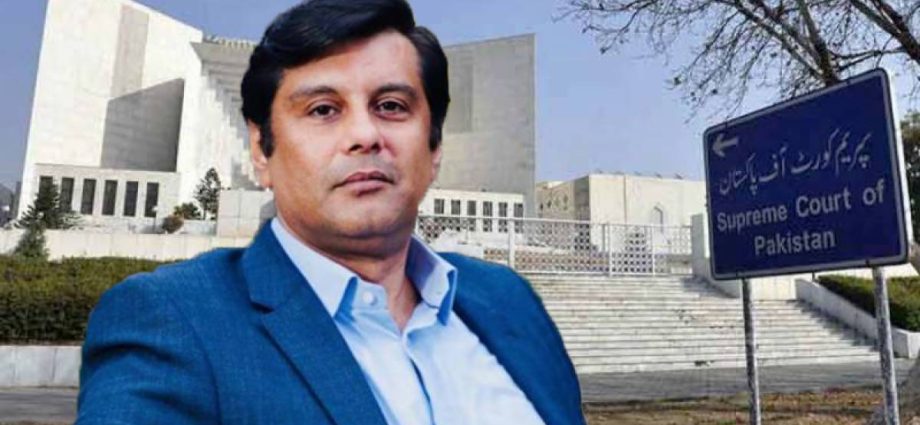
Reasons due to which Arshad Sharif left Pakistan be investigated: Supreme Court
CJP Umar Ata Bandia says govt delayed in writing a letter to the Kenyan govt for mutual assistance on the matter
Says JIT report had some deep points that could not be discussed in the courtroom
Justice Ahsan noted that the inquiry had three phases Pakistan, Dubai and Kenya. He asked whether phase one had been completed.
ISLAMABAD ( Web News )
Chief Justice of Pakistan Justice Umar Ata Bandial during the proceedings of suo motu notice case pertaining to senior journalist and anchorperson Muhammad Arshad Sharif’s murder, remarked that the government delayed in writing a letter to the Kenyan government for mutual assistance on the matter. He further stated Arshad Sharif’s death wasn’t just a matter of human rights but a dreadful murder.
A five-member bench headed by Chief Justice of Pakistan Umar Ata Bandial conducted hearing of the suo motu notice case on Thursday.
Justice Ijazul Ahsan asked investigators to discuss with the foreign ministry the possibility of involving the United Nations in the murder’s probe of journalist Arshad Sharif.
Justice Ahsan made the suggestion as a five-member bench of the top court comprising Chief Justice of Pakistan Umar Ata Bandial, Justice Sayyed Mazahar Ali Akbar Naqvi, Justice Jamal Khan Mandokhail and Justice Mohammad Ali Mazhar, resumed suo motu proceedings of the matter.
Senior journalist and anchorperson Arshad Sharif was murdered on the outskirts of Nairobi on October 23, 2022.

On Wednesday, the police submitted a 13-page interim report to the court about investigations into journalist Arshad Sharif’s murder for the judges to peruse in chambers only.
The SC bench had already issued notices to the heads of the FIA and Intelligence Bureau (IB) and Pakistan Federal Union of Journalists (PFUJ), as well as foreign affairs, interior, and information secretaries for Thursday.
At the outset of the hearing, CJP Bandial inquired whether the 41 people the special joint investigation team (JIT) questioned were in Pakistan. He went on to ask if the JIT also spoke to any of the people abroad through video link and what was progress regarding the investigation.
To this, Additional Attorney General Chaudhry Amir Rehman said that those who were out of the country would be questioned in Kenya. He added once the questioning is done, they will contact Interpol. He further informed the court that the progress report was submitted to the court.
Justice Ahsan noted that the inquiry had three phases Pakistan, Dubai and Kenya. He asked whether phase one had been completed. The AIG said that phase one was nearing completion, but added that “we cannot provide a timeline for the completion of the inquiry”.
The Chief Justice noted that some digital equipment belonging to Arshad Sharif had yet to be recovered. “Did the JIT find out where the devices are,” he asked.
He directed the officials to locate the missing gadgets, saying it was a test case for the investigation team. The court also remarked that the federal government had released funds to the JIT to pursue the case.
“The federal government had also written a letter related to mutual legal assistance on December 4 and officials are hopeful that there will be a good response from the countries on the lines of mutual legal cooperation,” the court said.
The CJP hoped the investigation team would visit Kenya well-prepared. Arsahd Sharif’s spouse Somia Arshad, who was also present during the hearing, raised reservations about a couple of members of the JIT, saying they were subordinates of the suspects nominated in the case.
CJP Bandial responded that subordinates could “do a lot [of work]” sometimes. “Let the JIT work and trust the institutions,” the CJP said. The Chief Justice noted that the JIT report had some deep points that could not be discussed in the courtroom.
Justice Jamal Khan Mandokhel said the JIT would examine the case from all aspects. While, Justice Naqvi said the court was not interfering in the investigation. “The court is giving freedom to the JIT for probe and the matter should be investigated transparently as the court is very serious about transparent investigation.” The hearing was adjourned till the first week of February.
Earlier, the court had directed the special JIT constituted by the interior ministry to approach the chief justice’s office directly if they experienced any difficulties in the pursuit of the assigned task.
The special Joint Investigation Team (SJIT) is led by Islamabad Police DIG Headquarters Awais Ahmed and has four other members — namely Muhammad Aslam from the Inter-Services Intelligence (ISI), Murtaza Afzal from the Military Intelligence (MI), FIA’s Waqaruddin Syed, and Sajid Kayani of the IB.
The interior ministry had constituted the SJIT to ensure effective foreign liaison and collection of evidence in multiple national and international jurisdictions. The office of DIG headquarters was supposed to act as the secretariat for SJIT meetings, which according to additional attorney general would commence soon.
Earlier, a 592-page fact-finding report furnished before the court concluded that the murder was a “planned targeted assassination” that purportedly involved “transnational characters”. The investigators also contested the version put forth by the Kenyan police that Muhammad Arsahd Sharif’s killing was the “case of mistaken identity”.

